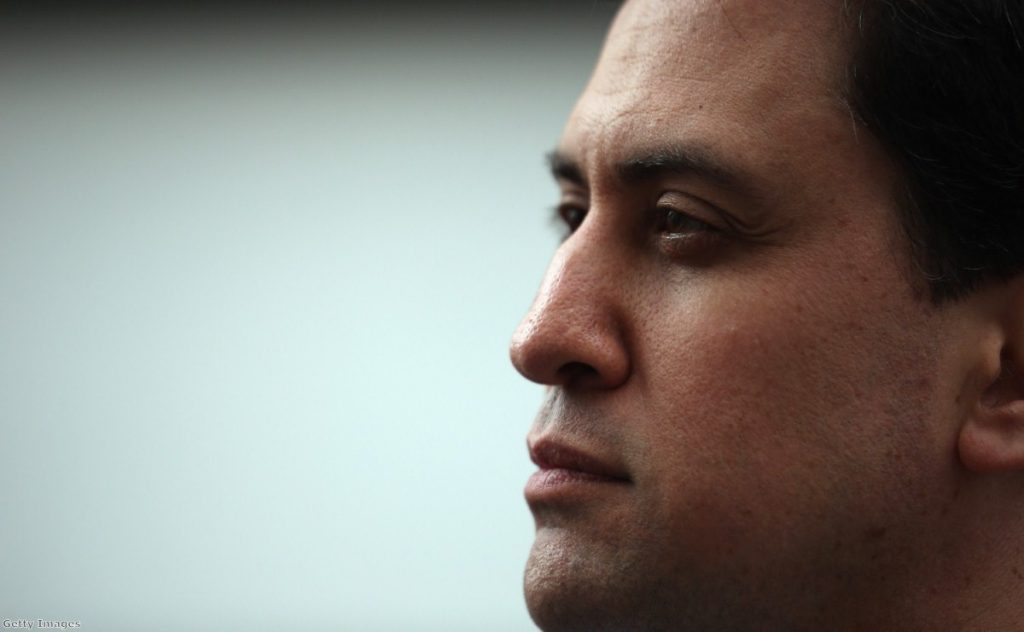Ed Miliband becomes the unlikely winner of the conference season
Ed Miliband looked like the unlikely winner of the conference season this morning, after the Labour leader overshadowed David Cameron's speech with his fight against the Daily Mail.
The prime minister's closing speech yesterday won lukewarm reviews in the press, on a day still dominated by developments in the battle between Miliband and the Mail over an article claiming his academic father "hated Britain".
Today's YouGov poll put Labour on the psychologically important 40% level, with the Conservatives on 34%, Ukip on ten per cent and the Liberal Democrats on nine per cent.
The slight narrowing in the Labour lead is a result of a small conference bounce for the Tories, with the two parties squeezing their smaller rivals, whose conferences took place earlier in the season.


Cameron's speech was more talked about than Miliband's on Twitter. The social media firm found the prime minister's closing address was mentioned in 23,000 tweets, compared to 20,200 for Miliband.
Nick Clegg’s speech generated just 9,300.
However, Twitter was unable to confirm whether the tweets were positive or negative, making the data of only limited value.
For most political commentators, the Labour leader's speech was the best of the three, even though many punditswere extremely critical of the economic viability of his plan to freeze energy prices for two years.
Miliband's later battle with the Mail is also understood to have won him widespread public sympathy, with even political opponents coming to his defence.
Nick Clegg and David Cameron have both backed the Labour leader's confrontation with the Mail, as has former member of Margaret Thatcher's Cabinet Lord Moore, former deputy prime minister Michael Heseltine and former editor of the Daily Telegraph Charles Moore.
"The Mail managed to offend against taste and decency on multiple counts – attacking a man for his deceased father's views, misrepresenting those views, attacking a Jew, attacking a refugee from Hitler," Moore wrote in this week's Spectator.
Clegg told LBC this morning: "It seems to me that if anyone excels in denigrating and often vilifying a lot about modern Britain, it’s the Daily Mail.”
Alan Sugar tweeted that Clegg and Cameron should join Miliband "in demanding that the Daily Mail shareholders, finally for once and for all, get rid of this man Dacre. He is a tyrant and he needs to be expelled from the newspaper".
The battle over the article could have a significant impact on the two plans for press regulation going before the privycouncil on October 9th.
They will consider rival plans by the three main political parties and pressure group Hacked Off on one hand and another by the UK's largest newspaper groups.
The row has no technical impact on the decision. Even Miliband has said it is about judgement rather than regulation, but it is likely to be on the minds of those considering the rival plans.
"I would hope that one story and the reaction to that story would not cloud such an important discussion on the future of press freedom," Chris Blackhurst, group content director of the Independent titles and London Evening Standard, said.
"I don't see how it's helped us although it shouldn't really be a negative. You have to bear in mind that the MPs involved in these discussions are only human."
The success of the Labour leader's counter-attack on the Mail has revived calls in the Labour party for a rapid rebuttal unit, which used to operate under Tony Blair to make sure no apparent inaccuracies in the press went unanswered.
But amid the healthy reception to Miliband's speech and row with the Mail, there were words of caution. Many media analysts now expect the Mail's attacks on the Labour leader to be unprecedented when the general election campaign starts in 2015.
Nevertheless, the new boost to the Labour leader's popularity in the wake of the party conferences will be a welcome relief to Miliband, given he went into the season as the most embattled of the three leaders.

